2001年9月11日,美国纽约世界贸易中心双子塔遭飞机撞击倒塌,911被赋予重大政治和宗教意义。
若不是911,相信当年的布什总统,也不会入侵伊拉克,掀起迄今未有解套方案的伊拉克战争...
若不是911,麦凯恩可能成为美国总统,民主党不会卷土重来...
若不是911,奥巴马可能只是伊利诺伊州参议员,未能改写美国历史...
若不是911,前首相马哈迪不会在当年929宣布大马为回教国...
若不是911,我们不会卷入世俗国和回教国的争议中...
其实911在我国也有独特的政治意义,特别是2009年。今年911是象征议会民主的国会大厦50周年纪念日。

独立至今52年,我们才刚迈入两线制的雏形。虽然迟了些,总好过没到。
反省国会的角色和功能,是我们献给国会50岁生日的最佳礼物。
追溯1959年,象征议会民主的国会大厦建峻后。当年8月19日首届大选的104位民选议员,惟他们并非在议会殿堂内宣誓就任成为议员。
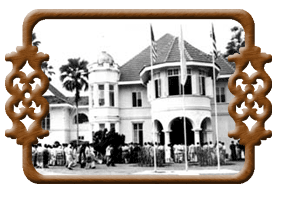
他们是在位于安邦路的东姑阿都拉曼礼堂(目前大马旅游中心所在处),宣誓就职。
国会,多次被反对党批评为橡皮胶,未能发挥立法角色,更妄论扮演监督与制衡功能。
国会也是立法机构的象征,一党独大严重扭曲立法角色,丧失三权分立的精神。
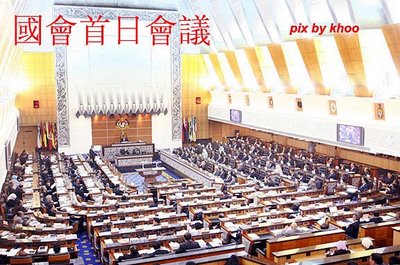
吉隆坡国会大厦、布城司法宫,以及布城政府大厦分别扮演不同角色。无奈行政至上令三权分立变调...
国会曾在五一三事件后,丧失功能长达10个月,敦拉萨为首的国家行动理事会接管所有事物。
国会议员数目从当年的104名增加至222名,提升硬体设施后的国会大厦,偶尔也听闻漏水事件,议员也发表没有格的「月漏论」。
最关键的还是议员素质,以及议会民主的精神未能获得彰显。
我们必须反思,送一份自我反省的礼物给议会民主吧!
MALAYSIA'S CUSTODIAN OF DEMOCRACY TURNS 50 ON FRIDAY
KUALA LUMPUR, Sept 8 (Bernama) -- On Friday, Malaysia's parliament, the custodian of the country's parliamentary democracy, will turn 50.
It was on Sept 11, 1959 that a total of 104 members of parliament, who were elected on Aug 19 the same year in the first general election after Malaya's independence, took their oaths as members of the Dewan Rakyat at the Dewan Tunku Abdul Rahman in Jalan Ampang, which now houses the Malaysian Tourism Centre.
Fifty years on, parliamentary democracy remains alive and vibrant in Malaysia.
To Dewan Rakyat speaker Tan Sri Pandikar Amin Mulia, this is a testimony of the country's success in defending its democractic system.
"There are countries which achieved independence around the same time we achieved ours but have not been able to defend their system."
"But in Malaysia, we are able maintain our system, except for a brief period after the May 13, 1969 incident," he told Bernama.


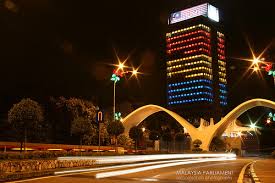

Pandikar Amin said that although parliament was suspended for 10 months in the aftermath of the May 13 incident, the power to elect the government was returned to the people when calm was restored.
"This is the democratic practice which we have defended all the while. Despite some quarters claiming to the contrary, the fact is, the institution of parliament remains strong," he said.
Pandikar Amin said that the strength of parliament provided the country's democratic system a healthy heartbeat and contributed to the country's stability and put Malaysia where it is now.
Since the first meeting, which was opened on Sept 12, 1959, Malaysia's parliament is now in its 12th term, which expires in 2013.
Pandikar Amin, who was appointed to the post in April 2008, is the eighth Speaker of the Dewan Rakyat.
By and large, parliament is a legislature where laws are debated and passed, and the members, either elected by the people to the Dewan Rakyat or appointed by the government to the Dewan Negara, are representatives of the people.
Pandikar Amin said that the institution of parliament had undergone changes in the past 50 years, especially in terms of approach adopted by its members, which, he said, was now more open.
"They are now voicing out in parliament, sometimes without regards for the racial and religious sensitivities of the multiracial people, which form the Malaysian society," he said.
He added that the advancement in the information communication technology had also brought about new dimensions to the country's democratic system.
"Empowered by the new media, they now think that in their hands are unlimited powers which give them the licence to put forth all kinds of arguments they think are good for their community.
"To me, this is not the way a true democracy operates. They must be responsible not only to their communities or groups but to Malaysians as a whole," he said.
Former Dewan Negara president Tan Sri Dr Abdul Hamid Pawanteh echoed Pandikar Amin's views, and described the current scenario as a challenge to the country's democratic system.
"This happens when there are groups who refused to accept the voice of the majority, which is the very pillar of our democratic system.
"Each and everyone of us must accept the fact that irrespective of our stand as an individual or as a group or race, what should prevail in the end is the voice of the majority and the decision of the majority.
"So long as we uphold this principle, democracy will survive and the survival of parliamentary democracy, and parliament itself as the custodian of democracy, is assured," he said.
He also said that since the 12th general election in March last year, there were signs that the country was heading towards a two-party system, following the path taken by other countries which had long been practising parliamentary democracy.
"Parliament mirrors politics. The results of the last general election showed that the country's democratic system is evolving towards a two-party system.
"If we are to delve into history, we will see similarities in matured democracy like in France and Canada. They started with many political parties but eventually reduced to one, two or three parties. I feel Malaysia is no exception if the history of democracy is anything to go by," he said.

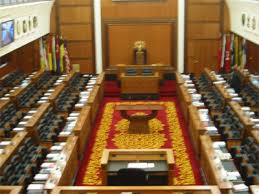


He brushed aside a suggestion that parliamentary democracy practiced by Malaysia was not genuine.
"To me, the democratic process mechanism is determined by free and fair elections, and I believe that after 12 general elections, they are free and fair. As such, the question of whether a democracy is genuine or not, does not arise.
"Despite whatever circumstances and daily quagmire faced by the government, as long as the elections are free and fair, and with conclusive results, then to me, democracy in the country is certainly that -- a democracy," he said.
For Dr Tan Seng Giaw, who is one of the longest serving member of parliament, the institution had played its role successfully as a platform that could be shared by all to discuss issues affecting the people.
"We cannot run from touching on racial and religious issues in our multi-racial community; but parliament is something that we all share.
"We use it to solve problems and that's what makes our parliament special. We don't apply force and violence (to solve an issue)," added Tan who has been Kepong MP for over 27 years.
Comparing the past and current environment in parliament, he said, democracy had allowed the people to be more vocal than they were before.
He also felt that Malaysia should not totally copy democracy as practised in other countries such as Britain, the United States or countries in the European Union.
"This is because our situation is different. What we can do to improve our parliamentary democracy is to take what is suitable for our country," he said.

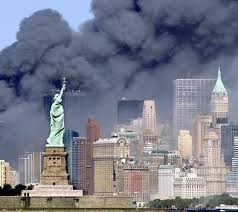


No comments:
Post a Comment